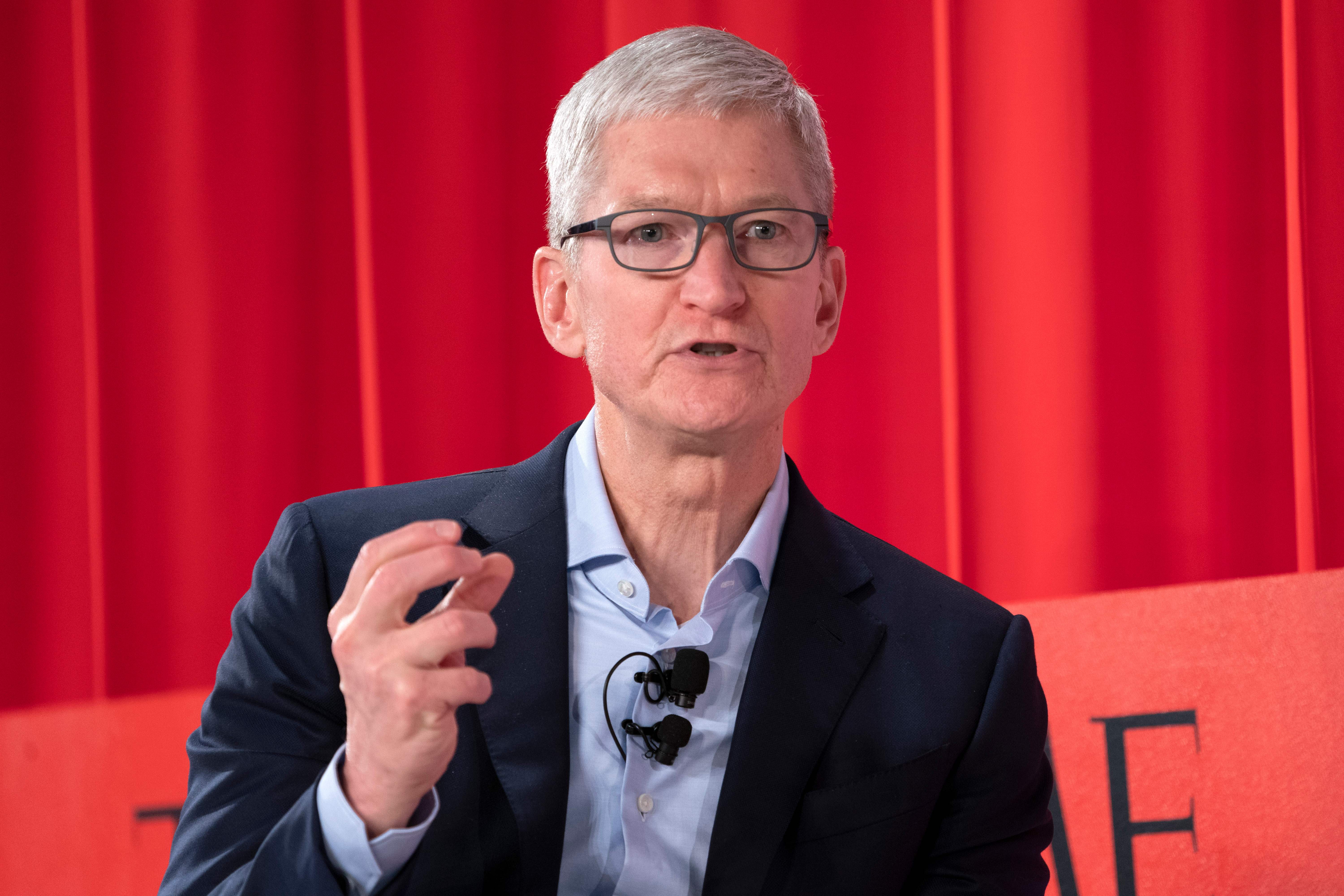Apple CEO Tim Cook speaks during the Time 100 Summit event on April 23, 2019, in New York.
Don Emmert | AFP | Getty Images
Apple is facing two major threats to its bottom line in the form of tariffs and antitrust regulations and Morgan Stanley on Wednesday broke down what the government-created pressures may cost the technology giant.
In its worst, “bear case” scenario, Morgan Stanley estimates the two external factors would send Apple’s stock down to $147 a share, shaving off more than $150 billion in market value from its current price. Morgan Stanley has a “base case” for Apple of $231 a share but tariffs could take as much as $71 a share from that, while antitrust regulations could cut out another $13 a share.
“Our bear case valuation now fully takes into account the impact from more restrictive US/China trade measures as well as a worst case regulatory impact, resulting in a $147 bear case valuation,” Morgan Stanley analyst Katy Huberty said in a note to investors.
Apple’s stock has already been hit this year by the impending costs from tariffs on goods imported from China. Sales in China made up 16.6% of Apple’s revenue in the first half of 2019. Apple shares had its worst week of 2019 in May as the growing fear of further trade levies took its toll Apple investors.
The antitrust threat to Apple
Huberty’s note focused on recent reports that the Department of Justice may investigate Apple for anti-competitive behavior. Morgan Stanley believes that an Apple-related antitrust investigation would most likely center on the App Store, ” she said.
The likely focus of the investigation, Huberty said, is because Apple already “faces a potential investigation in the European Union after Spotify accused Apple of anti-competitive actions by favoring Apple Music over third party apps. While E.U. prosecutors have not announced whether they will take any action, the scrutiny sets a precedent.
Apple’s application store has already been under a microscope in the U.S., as Huberty noted the Supreme Court “recently ruled that consumers can bring antitrust lawsuits against Apple related to elevated app store prices.” Additionally, Sen. Elizabeth Warren recently implicated Apple during an interview about her proposal to break up large tech companies. Warren implied that she thinks “Apple shouldn’t be allowed to both run an app store platform and offer its own products on the platform,” Huberty said.
If regulators do take action against Apple, Morgan Stanley believes they would likely target either Apple Music, with iTunes, or the company’s App Store. On its own, the firm estimates Apple Music is worth nearly $13 billion if sold off, or about $3 a share at the current price. Combined with iTunes, that total value jumps to $39.3 billion, or $9 a share.
But regulators may target the App Store instead, Huberty said, and in “an extreme scenario” the company could chop its cut from developers in half. If Apple’s commission rate was dropped by 50%, Huberty said “Apple’s take rate starting in [calendar year 2020] would equate to lost revenue of $9.5 [billion] and $13 [a share in] lower valuation.” Morgan Stanley estimates a 50% “take rate” for the App Store is worth $60.8 billion in equity value to Apple.
These antitrust scenarios are hypothetical until the Justice Department announces any action. Apple CEO Tim Cook went on the offensive earlier this week, saying in an interview that he doesn’t think “anybody reasonable is going to come to the conclusion that Apple’s a monopoly.”
“We don’t have a dominant position in any market,” Cook added.
